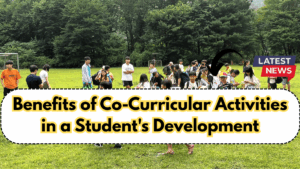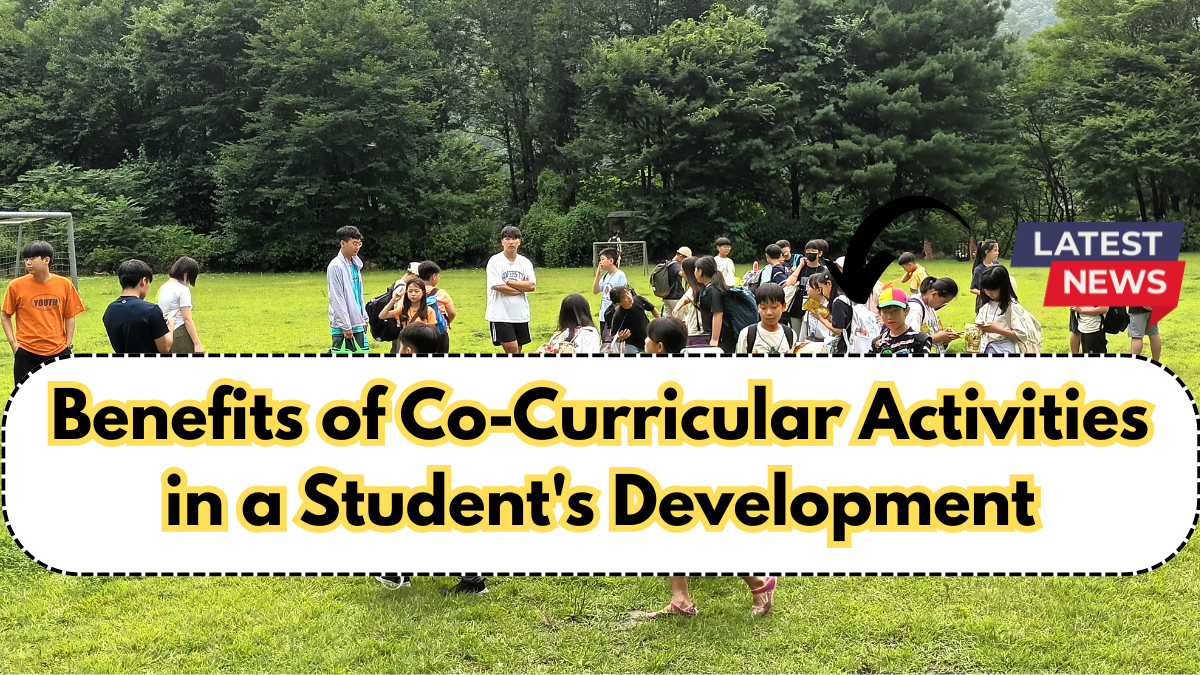Education is no longer confined to textbooks and examinations. In today’s schools, the most successful students are those who develop both academically and personally. That’s where co-curricular activities come in. These engaging and skill-building activities—ranging from debates and sports to drama and music—play a vital role in shaping a child’s all-round personality. More than just fun, they are essential tools for real-world learning.
Let’s explore how co-curricular activities enhance a student’s confidence, character, and collaboration skills, contributing to their overall success and happiness.

Encourages Holistic Development
Unlike traditional academics that primarily focus on cognitive skills, co-curricular programs promote physical, social, emotional, and intellectual development. These activities ensure that education remains balanced and impactful.
Core areas of holistic development:
-
Emotional expression through art, dance, and music
-
Physical fitness via sports and athletics
-
Cognitive stimulation in quizzes, clubs, and debates
This makes holistic development a key outcome of well-integrated co-curricular involvement.
Boosts Confidence and Communication Skills
Students involved in co-curricular pursuits often perform in front of peers, compete in events, and engage with diverse groups. These experiences sharpen communication abilities and build lasting self-assurance.
How it builds confidence:
-
Public speaking and stage exposure
-
Opportunities to express ideas and talents
-
Overcoming social anxiety through group participation
This is why these activities are essential to a well-rounded student life.
Enhances Teamwork and Leadership
Whether it’s a school play, sports team, or group project, students learn to cooperate, share responsibilities, and support one another. These soft skills lay the groundwork for leadership and interpersonal growth.
Skills developed:
-
Conflict resolution
-
Collaborative decision-making
-
Accountability and leadership in group settings
Such opportunities strengthen the co-curricular experience and teach life lessons beyond the classroom.
Supports Academic Performance
Contrary to the belief that extracurriculars distract from studies, students who are active in co-curricular activities often show better academic performance. Balanced participation fosters discipline and time management.
Reasons for improved academics:
-
Better mental alertness and energy levels
-
Enhanced focus and reduced academic stress
-
Motivation from achieving success outside academics
The link between co-curricular involvement and academic progress is a clear benefit in a student’s educational journey.
Promotes Creativity and Critical Thinking
From science fairs to art competitions, co-curricular activities spark creativity and nurture curiosity. These experiences encourage students to think outside the box, solve problems, and explore their interests more deeply.
Creative learning environments include:
| Activity Type | Skill Developed |
|---|---|
| Art/Drawing Club | Imagination & innovation |
| Debate Society | Analytical thinking |
| Science Club | Curiosity & experimentation |
These creative spaces are vital parts of every vibrant student life.
FAQs
What are co-curricular activities?
Co-curricular activities are non-academic programs that complement classroom learning, such as music, sports, clubs, and student councils.
How do co-curricular activities support holistic development?
They nurture emotional, physical, intellectual, and social aspects of a student, contributing to overall holistic development.
Can co-curricular involvement improve academics?
Yes. These activities build discipline, time management, and focus, which support academic performance alongside skill development.
Why are co-curricular activities important for student life?
They enrich student life by offering platforms for expression, growth, friendship, and self-discovery beyond textbooks.
What types of skills do co-curricular activities develop?
They foster communication, creativity, teamwork, leadership, and confidence—all essential for future success.
Click here to know more.
